I recently found out about the Mandelbrot set and now I am trying to generate a Mandelbrot set in Processing 3.0. I found a tutorial on youtube about programming it and tried to impelement it in Progressing.
background(255);
size(1280, 720);
}
void draw(){
int maxIteration = 100;
double reMid = -0.75;
double iMid = 0;
double rangeR = 3.5;
double rangeI = 2;
double xPixels = 1280;
double yPixels = 720;
for(int x = 0; x < xPixels; x++){
for(int y = 0; y < yPixels; y++){
double xP = (double)x / xPixels;
double yP = (double)y / yPixels;
double cReal = xP * rangeR + reMid - rangeR / 2;
double cIm = yP * rangeI + iMid - rangeI / 2;
double zReal = 0;
double zIm = 0;
int iteration = 0;
while(iteration < maxIteration && zReal * zReal + zIm * zIm <= 4) {
double temp = zReal * zReal - cIm * cIm + cReal;
zIm = 2 * zReal * zIm + cIm;
zReal = temp;
iteration++;
}
if(iteration >= maxIteration - 1){
stroke(0);
}
else{
stroke(255);
}
point(x, y);
}
}
}
But when i generated the Mandelbrot set, it looked different than it should:

I have already compared my code with the one in the video, but i did not find a mistake in my code. Does anyone know, what I did wrong?